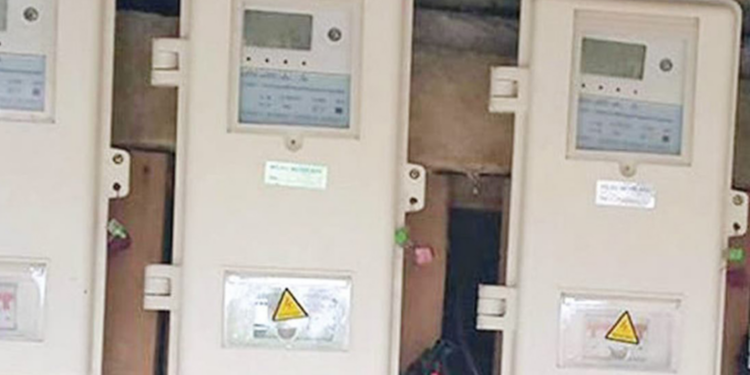In an insight document on electricity metering published on August 31 by the Energy Markets Rates and Consultants (EMRC), there were several reasons given as to why metering gaps exist in Nigeria, despite efforts by the government and its partners to close the gaps through the National Mass Metering Programme (NMMP) and the Meter Asset Providers (MAP) scheme.
In the document, it was said that the Nigerian Electricity Regulatory Commission (NERC) pointed out in its electricity report that the country has 12.3 million registered electricity consumers, meanwhile, only 5.3 million are metered and 7 million consumers are left unmetered as of the first quarter of 2023.
According to the EMRC, the metering gap in Nigeria exists for the following reasons:
- Resistance to Change: Many consumers are typically reluctant to adopt the installation of meters due to concerns about capital cost, perceived inconvenience, and apprehensions about transitioning to a new billing methodology.
- Lack of Consumer Awareness: Many consumers lack awareness about the advantages of precise metering, their rights in the process, and the role it plays in promoting efficient energy consumption.
- Regulatory and Policy Issues: Inadequate enforcement of metering mechanisms creates complexities in the electricity metering sector. These issues could discourage private investments in metering infrastructure and hinder the adoption of modern metering technologies.
- Corrupt practices: The slow pace of meter deployment is exacerbated by corruption within the metering supply chain. This includes misappropriation of funds designated for new meters and imposition of unauthorized fees on customers, a clear misalignment with the regulatory provisions for meter procurement.
The unavailability of meters for customers has resulted in a significant metering gap.
However, efforts have been made to close the metering gap over the years. The document stated further that metering contributes to effective energy management, grid stability, and the cultivation of energy-conscious behaviours among consumers.
The EMRC document also gave recommendations on how the metering gap in Nigeria can be closed:
According to EMRC, the metering gap can be curbed through the following strategies:
- Investing in Infrastructure: Allocating resources for expanding metering infrastructure is critical to encompass a larger customer base.
- Strengthening Regulatory Frameworks: Consistent and clear regulatory policies will incentivize private sector participation and innovation in metering solutions.
- Educating Consumers: Elevating awareness about the benefits of metering can alleviate resistance and foster customer collaboration.
- Continuous Innovation: Launching new metering projects, informed by the successes and learnings of prior initiatives, will fuel ongoing progress.
These actions can collectively lead to a transparent and accountable billing process, increased Nigerian Electricity Supply Industry (NESI) revenue, and improved access to reliable electricity for customers.















The above assertion on metering gaps is not true. The casual factor is that consumers are expected to pay for their meters. Some of them who willing to does not have the assurance that the money so paid will be recovered from power consumption. Another key issue is that marketers prefer unmetered so what ever kick back they get for not cutting off power to the affected houses are pocketed instead going to pocket of business owners.
My experience.
I went to powerholding in port harcourt to request for a meters and I was told to open an account with sum of 15k that will not receipted, I was further told to pay for the meter and they will get back to me when the meter is ready or alternatively go through a marketer to make it faster Note going through a marketer will attract a premium depending on your negotiating power.
However, the most annoying part is when I inquire on how I will recover the amount paid since the meter is a the property of power holding , I was told that I shouldn’t listen to NERC that they noise maker.
So to me, the power holding through their staff are ripping off the average Nigerian who want to do the right thing, hence power are being stolen. Also I believe that NERC does have the political power to enforce their own rules. They only make noise in pages of newspapers because their own staff frustrate you through delay when you go and complain about the action of Poweholding to them.
NERC needs to monitor the activities of DISCOs, one way of doing this will be to provide a direct complaint line or email address which they will manned adequately.
DISCOs charge as high as N40,000 per meter, just to process meter application, then the customers are asked to wait for 4-6 months to be invoiced. Invoicing could take another 3-4 months. I have been waiting to be invoiced for months now, emails to EKEDC/EKEDP is usually responded to by the CSO with assurances of escalation that never happens. I can only imagine how long it will take to get the meter after payment has been made.
The process of metering has been deliberately hijacked by corrupt DISCOs at the detriment of customers.
As far as I know, most customers desire to be metered but the corruption-ridden process is devastating. How can a private company be this inefficient and corrupt?